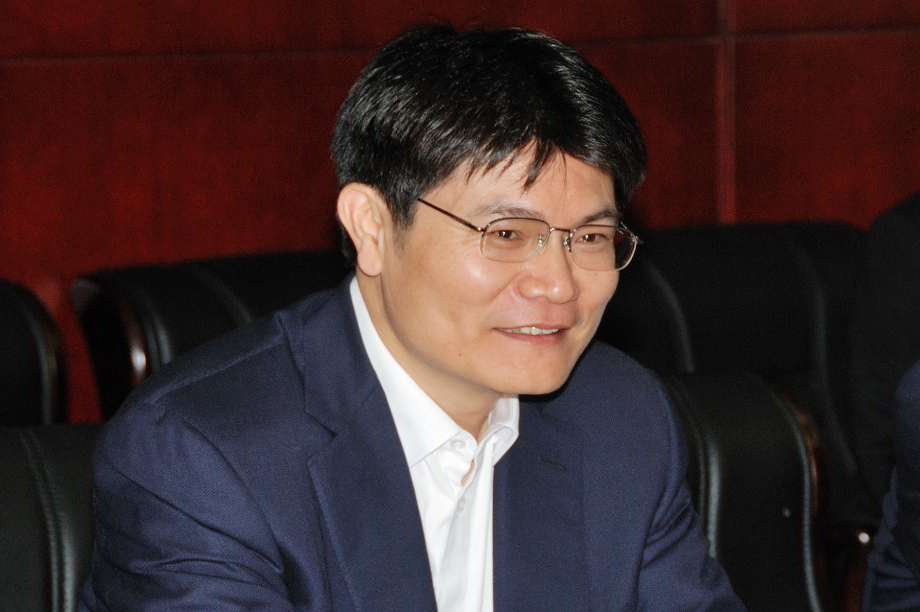Han, who founded Sinovel in 2006 and expanded it into China's largest wind turbine maker in 2008 — and the world's second largest in 2010 — said personal reasons were behind his decision to leave all his posts at Sinovel except for director of the board.
In August 2012, Han handed over the post of Sinovel president to billionaire Wei Wenyuan, the fourth largest shareholder of Sinovel, who represents the interests of venture capital groups.
On the day of Han's resignation, the board of directors held an interim meeting, attended by all the nine directors, to elect Wei as board chairman.
Disgruntled Investors
Most analysts believe Han resigned because of heavy pressure by venture capital groups.
As the Chinese wind sector began to slow in 2011 following a five-year boom period, Han continued to expand staff and build more factories, betting his company's future on offshore wind power and the overseas market.
The gamble failed to pay off. In the first three quarters of 2012, Sinovel recorded only CNY 3.6 billion ($571 million) operating revenues, compared with CNY 8.4 billion for the same period the year before. It made a loss of CNY 255 million, compared with CNY 900 million net profits year on year. It was the first time Sinovel went into the red in four consecutive years.
Since Han's replacement by Wei as president, Sinovel has introduced a number of measures in an attempt to return the company to profitability, including downsizing, slashing financial costs, adjusting organisational structure and changing the company's strategic priorities.
Perhaps Wei's most notorious move was the introduction of a "paid vacation" for workers at 80% of the minimum wage, widely believed to be the disguised dismissal of 469 staff from under-capacity or ceased-production posts, representing 16% of Sinovel's total staff.
Most recently, at the start of March, Sinovel turned its international business into a separate subsidiary and restructured its domestic business into four separate regional subsidiaries.
This move followed Sinovel's announcement in January that it expected to have made full-year losses in 2012 of CNY 490 million, down 163% from its CNY 775 million net profit in 2011. The manufacturer blamed postponed implementation of signed orders because of macro-economic fluctuations and industrial policy adjustments; and delayed payment by turbine buyers.
On 19 March, Sinovel stock was quoted at CNY 5.73 per share ($0.91), compared with CNY 90 ($14.33) in January 2011. It means more than CNY 60 billion has been wiped off Sinovel's market value, which was worth about CNY 90 billion when it launched on the Shanghai Stock Exchange with its initial public offering (IPO) two years ago.
The venture capital investment companies obviously could not tolerate the great change in company performances.
Although Han controls 11.9% and is the third largest shareholder, he has limited decision-making power in major strategies when clashing with multiple big-stake venture capital investment companies.
Pending Investigation
However, there has been speculation Han's resignation may be connected to a possible investigation of Sinovel by the China Securities Regulatory Commission (CSRC).
On 6 March 6, Sinovel released a statement to correct errors in the financial report of 2011, covering owners' equity, operating revenues, operating costs and net profits. According to the correction, Sinovel made a false report of its performances of 2011, and should remove CNY 929 million from the CNY 10.4 billion operating revenues and CNY 168 million from the CNY 776 million net profits it previously announced for 2011.
Sinovel explained this was a result of self-examination, and the errors were made by miscalculating incomes from projects in which turbines were not installed by the end of 2011, meaning the incomes should be counted for 2012 instead.
But the error was serious considering Sinovel floated its shares on the Shanghai Stock Exchange on 13 January 2011 with an issue price of CNY 90 per share, a record high in the stock exchange. It raised $13.97 billion in the IPO, 28.1% of the total IPO funds raised in the Chinese wind power sector in the previous five years.
Xu Feng, a lawyer at Shanghai Huarong law firm, said Sinovel allegedly made false statements, and this is a major issue for information disclosure of listed companies.
"The net profits falsely rose so much, and it would surely cause losses to investors," said Xu.
Uncertain future
Despite Wei's efforts to restructure the company, many Sinovel staff and analysts remain doubtful about the company's future — even more so because from January 2014, Sinovel initial shares and shares held by the venture capital investment companies will be free to float on the stock market. Many wonder whether the shareholders will cash in and run.

.png)


.png)










